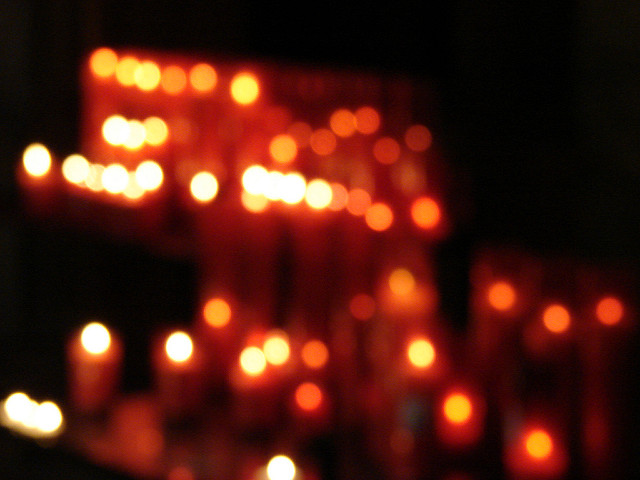Much has been said of the shameful march of white supremacists in Charlottesville. A painful page in the history of a country that, only a few years ago, brought an African American to the White House and, with him, the hope of overcoming the wounds and divisions of the past. The row of torches, Nazi flags, Ku Klux Kan hoods and the racist slogans, shouted loudly, created a spooky, regurgitated image of a past that, like an endemic disease, seemed to have been eradicated and yet continues latent.
It is not an exclusively American disease, on the contrary. In Europe, neo-Nazi groups pop-up practically in all countries. According to the 2015-2016 European Network Against Racism (ENAR) report, migrants are the preferred target of racist hatred in 26 European countries. It is a hatred fed by the political speeches of some leaders, who channel fears and concerns of the voters, blaming the immigrants for all of their evils. Reading some of the words of Beatrix von Storch, deputy chairman of the ‘AfD’ party (‘Alternative for Germany’), is enough.
In Latin America, racist hatred in all its nuances is mixed with a populism, which uses the same mechanisms that some European leaders use: to direct hatred and fears towards vulnerable objectives. They can be Jews, homosexuals, women, immigrants.
In Brazil, two of the most radical groups are Carecas do Subúrbio and Carecas do ABC, whose motto is «God, Fatherland and Family.» These groups, which unite whites and afro-descendants, deepen their roots in a violent and profound rejection of homosexuals, punks and drug addicts; and in Venezuela, after the victory of Hugo Chavez, anti-Semitic signs reappeared —in 2009, a group of fifteen people broke into the most important Synagogue, destroyed objects of worship and painted phrases full of threats— and, in 2015, after Closing the border with Colombia, the government deported many Colombians and marked their homes with an «X»: once again, a weak sector of the population served to wash the sins of others and to deflect discomforts.
In the last century, many ex-Nazis sought refuge in Latin America. Their slogans are mixed today with those of political groups that have a common denominator: violence as a weapon to fight ideas, tolerance and freedom.
The wound of Charlottesville was still bleeding when an attack left many dead and wounded in the Rambla de Barcelona, one of the busiest places in the Spanish city, a destination for much tourism, mostly young.
Isis, like a vulture that seizes other people’s corpses, has claimed the attack, exacerbating hatred, fears and intolerance.
To destabilize, create divisions: that is the ultimate goal of all violent groups. Getting hooked into their game would be fatal to our present and our future.
The most sensible thing to do, in spite of the pain and the indignation, is to fight them with weapons they do not know how to answer to: voting, political and citizen participation and culture.
It should not be forgotten that these groups remain a minority. A minority that shouts, threatens, kills; but is still a minority.
Focusing on only depressing and deplorable images of white supremacist parades, or on the photos of the terrorists who cowardly threw a vehicle over defenseless people, downplays the importance of all other sectors of the population, which are a majority. They do not shout, sometimes they do not go out on the street to manifest, but they do want to live in peaceful and inclusive societies.
The torches that burned as a symbol of peace, unity, and tolerance at Charlottesville, were much more numerous. Torches that invited to not forget, and that transformed the pain of the family of Heather Heyer, victim of the hatred, in a shared mourning. Similar solidarity has gathered around the families of the victims in Barcelona, and the Rambla was filled with thousands of people who want an inclusive world, peaceful, and in harmony with nature.
Solidarity, and the construction of a wall capable of stopping and blocking hatreds and revenges, are the only possible way to prevent a few faulty seeds from growing crazed and occupying every space on earth.
We need to prevent isolated stones from becoming avalanches that drag behind themselves the best part of our humanity.
Photo Credits: Abhijay Achatz ©


